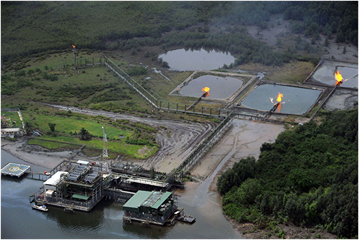Following a string of incidents over the weekend, increased geopolitical dangers in Russia and the Middle East came into stark relief, causing oil prices to steadily rise on Monday.
WTI crude oil continued to trade above $80 per barrel, while Brent crude futures were trading close to $84 per barrel.
The oil price has stabilized following the escalation of drone assaults by Ukraine on Russian refineries over the weekend, with a focus on critical infrastructure on Sunday.
Further raising tensions in the area, an oil tanker headed for China was hit by a missile fired by Houthi rebels in the Red Sea on Saturday, according to Bloomberg.
Separately, the semi-official Mehr news agency stated that Iranian President Ebrahim Raisi and Foreign Minister Hossein Amir-Abdollahian perished in a helicopter crash on Sunday. The loss of the nation’s senior officials will not affect the country’s affairs, according to Supreme Leader Ayatollah Ali Khamenei.
Important information
The Houthi rebels’ missile attack on an oil ship headed for China in the Red Sea highlights the region’s ongoing unpredictability, which is significant because the Middle East is still a major oil transportation hub for the world.
In response to the market’s reaction to these developments, Warren Patterson, head of commodities strategy at ING Groep NV in Singapore, stated
“The market has grown desensitized to geopolitical developments, and the massive quantity of spare OPEC supply is most definitely contributing to this. We may have to wait for OPEC+ to provide more clarification on its output policy before breaking out of the range.”
More details
This year’s 9% increase in the global benchmark Brent crude price is mostly attributable to production curbs imposed by the Organization of Petroleum Exporting Countries (OPEC)+ alliance. But since mid-April, as prior geopolitical concerns subsided, prices have fallen.
Market players are now focused on the June 1 OPEC+ meeting, and expectations are that the current output curbs will be maintained.
For the second straight week, hedge funds and money managers have reduced their net long positions in Brent crude, indicating a more cautious attitude among the market. They are now in their least positive posture since January.
A cautious assessment of demand is also indicated by the discernible retreat in wagers on rising gas prices ahead of the summer driving season in the United States.
Context
The OPEC+ meeting is eagerly anticipated by market watchers for clues regarding future production policy. The prolonged production cuts by OPEC+ members are anticipated to provide a floor for oil prices, avoiding sharp drops, notwithstanding the present pessimistic sentiment among hedge funds.
The oil market is still vulnerable to more disruptions due to ongoing geopolitical tensions, which highlights the need for both traders and experts to exercise caution. The course that oil prices take in the upcoming weeks will be greatly influenced by events that transpire in Iran, the Middle East, and Russia.
Nigeria produced 1.32 million barrels of oil per day (bpd) in February 2024 and 1.23 million barrels per day (bpd) in March of that same year.
Due to recurrent targets not being met due to oil theft and decreasing production levels, the nation’s 2024 target was lowered from 1.74 million to 1.38 million.



